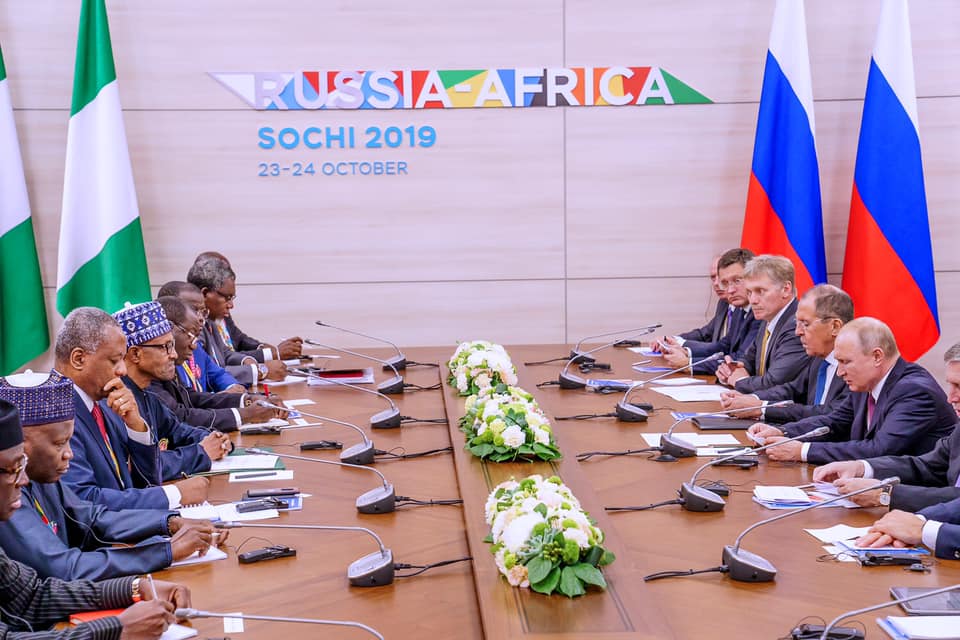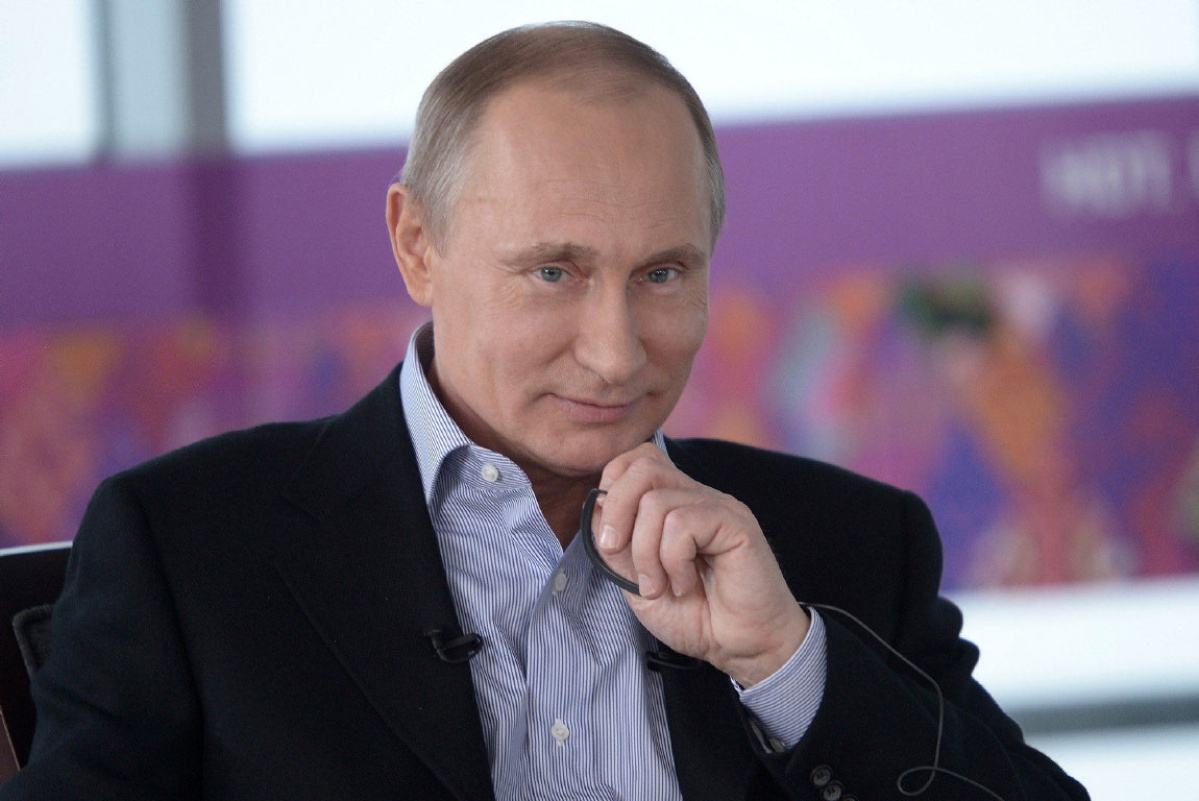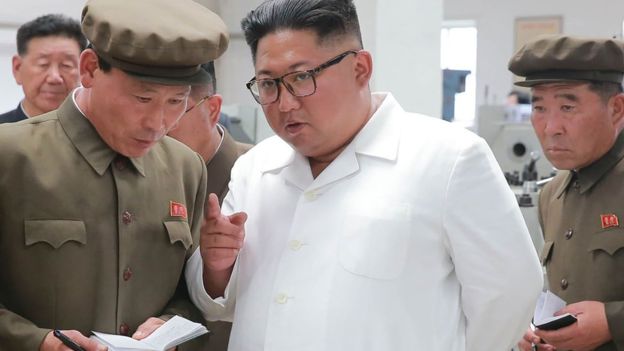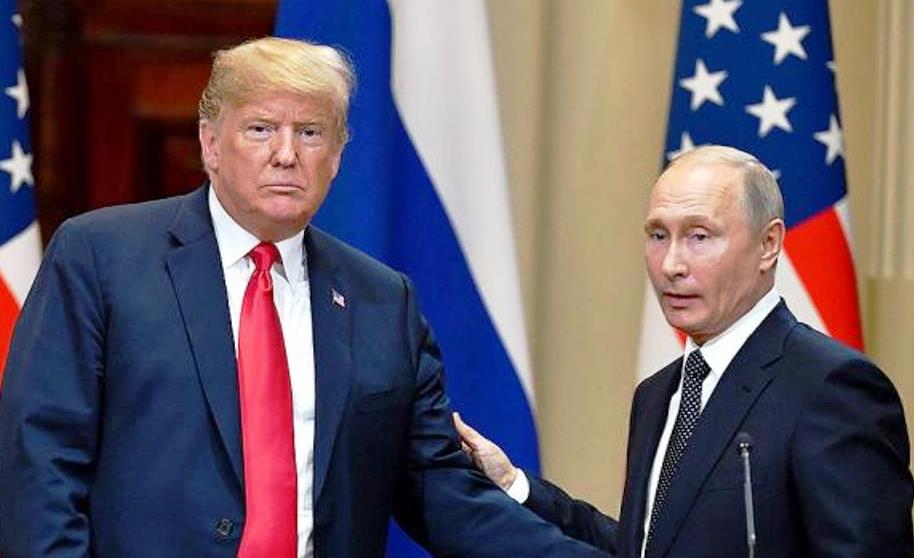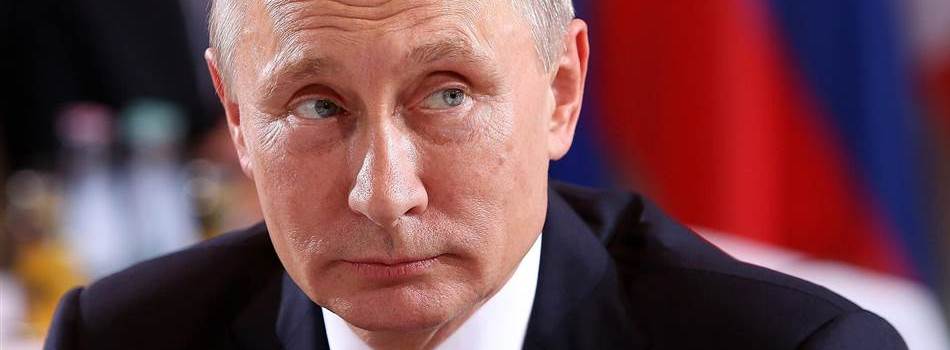On October 23-24, Sochi will host the Russia-Africa Summit and Economic Forum. Russian President Vladimir Putin in an interview with TASS has shared his expectations of this unprecedented top-level, full-fledged summit, warned of the risk of economic confrontation between major powers on the continent and spoke about the scale of military-technical and humanitarian assistance to African countries
Question: The Sochi Summit is meant to open a new chapter in the relations between the Russian Federation and African countries. Its participants will bring to Sochi their ideas about ways to develop cooperation. What does Russia, in its turn, have to offer to the states of the African continent? What is Russia’s biggest competitive advantage that you will present to the heads of delegations at the Summit? What volume of Russian investment in African economies do you expect to achieve, say, in the next five years?
President of Russia Vladimir Putin: Russia and African states have traditionally enjoyed friendly, time-tested relations. Our country has played a significant role in the liberation of the continent, supporting the struggle of its peoples against colonialism, racism and apartheid.
Later on, we helped the Africans to protect their independence and sovereignty, gain statehood, form the basis for national economies, and create capable armed forces. Important infrastructure facilities, hydroelectric power plants, roads, and industrial plants were built by Soviet – and subsequently Russian – specialists. Thousands of Africans received quality professional education at our universities. This is well remembered by many current African leaders, who value our support. We too keep the memory of those pages of history.
Today, the development and strengthening of mutually beneficial ties with African countries and their integration associations is one of Russia’s foreign policy priorities. We will shortly be witnessing an unprecedented, benchmark event: on October 24, Sochi will host the Russia-Africa Summit. This will be the first full-scale top-level meeting, to which we have invited leaders of African states and heads of Africa’s major regional associations. The idea to organise such an event emerged quite a long time ago; however, it has taken some time and considerable preparatory work to make this Summit a starting point for building fair partnership relations based on equality and mutual practical interest.
We expect that our African colleagues, representatives of the business community will come to Sochi with a solid package of proposals aimed at enhancing bilateral relations, while heads of Africa’s regional organisations will share their ideas as to how we could jointly develop our multilateral cooperation. We will consider these initiatives with great interest and decide what could be launched right away and what will require further elaboration.
Russia also has its vision of how to ensure further development of its ties with the African continent. We intend to discuss relevant ideas with our partners, systematise and reflect them as concretely as possible in the final declaration. Besides, it is important to identify mechanisms for implementing agreements that would be reached at the top-level meeting in Sochi.
I am sure that the Summit will be a success since all the necessary prerequisites are there. Today, the Russian-African relations are on the rise. We maintain a close political dialogue, including on the issues of global and regional security. The ties between our parliaments are expanding. Our mutual trade is steadily growing and diversifying.
Russia, together with the international community, renders comprehensive assistance to Africa, inter alia, by way of reducing the debt burden of its states. With a number of countries we are carrying out debt-for-development swap programmes. Russia supports efforts aimed at controlling the spread of infectious diseases (including Ebola haemorrhagic fever), natural disaster relief, settlement of existing conflicts and prevention of new crises. Russian universities provide professional training for national specialists from African countries both free of charge and on a commercial basis. Our defence and law enforcement agencies are stepping up their cooperation as well.
However, these are by no means all the items on our cooperation agenda. Our African partners see and appreciate the fact that Russia’s foreign policy, including in relation to their continent, is of constructive nature; that Russia, as one of the UN Security Council permanent members, advocates democratisation of international affairs, supports the legitimate aspiration of African states to pursue their own independent policy, to decide on their own future without imposed ‘assistance’ by third parties. When doing so, we do not make our support and joint development projects which we offer contingent upon the fulfilment of political or any other preconditions or so-called ‘exclusive’, but in fact enslaving trade and economic preferences; we do not impose our views, respecting the principle of ”African solutions to African problems“ proposed by the Africans themselves.
As for the potential level of investment in Africa in the next five years, the figure is expected to be quite high, with a number of billion-dollar investment projects with Russia’s participation currently in the pipeline. Both Russia and Russian companies have substantial resources. We hope that our partners, in turn, will create the necessary stable and predictable business environment and investment protection mechanisms and ensure favourable investment climate.
Question: Competition in today’s world is extremely high. Is Russia ready for tough rivalry in Africa, say, with China or the US? Do you think there are risks of using protectionist policies, trade wars or unfair competition against Russia? What methods do you intend to apply to address them? Won’t this rivalry adversely affect the African partners?
Vladimir Putin: Indeed, interest in developing the relations with African countries is currently visible not only on the part of Western Europe, the US and the PRC, but also on the part of India, Turkey, the Gulf states, Japan, the Republic of Korea, Israel, and Brazil. This is not accidental, as Africa increasingly becomes a continent of opportunities. It possesses vast resources and potential economic attractiveness. Africa’s infrastructure needs are increasing, and African population is rapidly growing, as are its demands. All of this, in turn, calls for an expanded domestic market and greater consumption. Of course, where there are promising prospects for investment and profit, there is always competition, which, unfortunately, at times goes beyond the bounds of decency.
We see a number of western states resorting to pressure, intimidation and blackmail against governments of sovereign African countries. They hope it will help them win back their lost influence and dominant positions in former colonies and seek – this time in a ”new wrapper“ – to reap excess profits and exploit the continent’s resources without any regard for its population, environmental or other risks. They are also hampering the establishment of closer relations between Russia and Africa – apparently, so that nobody would interfere with their plans.
We certainly take note of these factors and draw conclusions. We are not going to participate in a new ”repartition“ of the continent’s wealth; rather, we are ready to engage in competition for cooperation with Africa, provided that this competition is civilised and develops in compliance with the law. We have a lot to offer to our African friends. This will be discussed, among other things, at the forthcoming Summit.
And, most certainly, we, together with our African partners, are committed to protecting our common economic interests and defending them against unilateral sanctions, including by reducing our dollar dependency and switching to other currencies in mutual settlements.
I am confident that the Africans are by no means interested in the escalation of confrontation between the major powers in the continent. On the contrary, they would like the rivalry to give way to cooperation in addressing urgent challenges for Africa, such as terrorism, crime, drug trafficking, uncontrolled migration, poverty, highly infectious diseases. I would like to reiterate that this is the kind of work Russia is willing to participate in.
Our African agenda is positive and future-oriented. We do not ally with someone against someone else; and we strongly oppose any geopolitical ”games“ involving Africa.
Question: The Soviet model of cooperation with African countries often involved the lending mechanism. Did this policy prove effective? Does Russia plan to resume the practice of providing loans to African countries? What other mechanisms for offering support to African countries are you prepared to discuss?
Vladimir Putin: Indeed, the Soviet-era model – with its pros and cons – proved quite effective at the stage of the development of statehood in African countries. We still continue rendering financial assistance to African states. While in the past, these decisions were primarily politically motivated, now they are part of the humanitarian assistance.
As far as granting loans is concerned, today these loans are market-oriented. For example, a decision was made to grant a loan to Egypt in the amount of $25 billion for the construction of four power units for El Dabaa NPP. This is specifically market-oriented lending.
Let me point put that in the post-Soviet period, at the end of the 20th century, Russia cancelled $20 billion of African countries’ debts to the Soviet Union. This was both an act of generosity and a pragmatic step, because many of the African states were unable to service those debts. We therefore decided that it would be best for everyone just to start our cooperation from scratch.
There are other schemes that are currently applied to some of the remaining debts. For instance, intergovernmental agreements with Madagascar, Mozambique and Tanzania are being implemented in the framework of the debt-for-development swap programme. We expect that Ethiopia’s remaining debt to Russia ($163.6 million) will be settled under similar conditions. The relevant draft agreement is currently being elaborated.
Let me also remind you that Russia makes contributions to international programmes of assistance to Africa in the framework of the UN Development Programme, the World Food Programme (WFP), and the International Civil Defence Organisation. Sometimes in-kind support is provided. Since 2011, WFP offices in Africa have received 258 KAMAZ trucks. Another batch of 75 trucks has been shipped most recently.
At the same time, the use of new financial mechanisms does not rule out the practice of granting loans, but rather provides for a wider and more diversified toolkit in support of development. It contributes to establishing mutually beneficial cooperation between Russia and African countries.
All these issues will be examined at the Economic Forum on October 23‑24. We are ready to hear proposals from our African partners and share our considerations.
Question: Earlier, military technical cooperation was among the areas of interaction between Moscow and African countries. Are there any plans to enhance it? Are you going to discuss any specific projects or contracts with the Summit participants?
Vladimir Putin: Indeed, the traditions of our military technical cooperation are deeply rooted. It was developed back at a nascent stage of establishment of African states and played its role in the fight of peoples of the continent for their independence. And our African partners highly appreciate it.
Today, we have agreements on military technical cooperation with more than thirty African countries which we supply with a wide range of military equipment. Of course, part of it is being transferred at no charge. But this is common practice followed by all leading world countries.
It is encouraging that military technical partnership continues to evolve vigorously. What’s more, African countries often initiate such cooperation themselves, because they understand that one should be able to protect its independence and sovereignty, including from extremist and terrorist groups. It is yet another incentive to cooperate with Russia, which has abundant experience in fighting terrorism, including in Syria.
Our African partners actively participate in military-technical fora and military exercises organised by Russia, in the framework of which they get acquainted with Russian advanced weapons, military hardware and experience of its use. For our part, we will further contribute to training military personnel of African states and take part in training African peacekeepers.
Question: Social and humanitarian cooperation is declared as a theme of the Summit. Why does Russia help Africa if far from all its own social problems are resolved?
Vladimir Putin: Humanitarian assistance is being provided to Africa by many world countries, yet none of them – be it the US, France, China or any other country – has fully resolved all of its social problems, including in healthcare, education and culture.
Russia too provides humanitarian assistance to African states, but not by reducing the amount of funding for its own programmes. After all, good traditions of charity and support in times of need are a hallmark of our people.
I will give a recent example. Russia, as many other states, provided aid to the African countries affected by tropical cyclone Idai in April 2019. Russia sent humanitarian supplies to Zimbabwe, Malawi and Mozambique, i.e. large tents, blankets and food products weighing about 30 tonnes for each country.
We continue to take an active part in efforts to provide comprehensive assistance to Africa. Russia is involved in the UN World Food Programme’s school meals project valued at $40 million, which has been implemented in Mozambique since October 2017, and in the project to introduce modern technology and equipment for disinfection worth up to $15 million in Madagascar.
We also provide assistance to our African friends in healthcare development, as dangerous communicable diseases respect no borders. Russia was among the first to react to Ebola haemorrhagic fever outbreak, having allocated $60 million to combat it. There is now a microbiology and epidemiology research centre in Guinea. Russia contributed $20 million to the World Bank programme to implement the global malaria control initiative.
And such examples are plenty. I would like to emphasise that Russia’s participation in fighting poverty, dangerous illnesses and other global threats, as well as reduction of potential risks ”at distant approaches“ are fully in line with our national interests.
Question: Security issues are particularly acute in some African countries. This affects the operation of Russian companies there. Are you going to raise issues of security at the Summit and propose measures to strengthen it? What help is Russia ready to provide to settle conflicts across the continent?
Vladimir Putin: An important element of Russia’s interaction with African countries is regional security cooperation. Our Summit’s slogan – For Peace, Security and Development – is not accidental. Steady progress is not possible without resolving these problems.
The situation in many parts of Africa is unstable: inter-ethnic conflicts and acute political and socioeconomic crises remain unsettled. Numerous terrorist organisations, such as ISIL, al-Qaeda, Boko Haram and Al-Shabaab, are highly active in North Africa, the Sahara-Sahel region, Lake Chad area and the Horn of Africa. Armed forces and law enforcement bodies of African countries cannot oppose militants alone and need significant aid.
We will further increase contacts between special services and law enforcement agencies of Russia and African countries in the field of countering terrorism, organised crime, drug trafficking, money-laundering, illegal migration and piracy.
In demand is the practice of training military and law enforcement personnel of African countries, including at a reduced cost and free of charge. For example in the past five years alone, more than 2,500 service personnel from African countries completed studied at the military educational institutions of the Russian Defence Ministry.
Our African partners take an active part in Russia-organised events, such as the International Military-Technical Forum and meetings of high representatives for security issues. Eleven African countries participated in the 2019 International Army Games. And the number of those willing to join them is growing.
Ultimately, all those programmes have the same goal – to help Africans solve existing security issues themselves, as it will strengthen African states, their sovereignty and independence. And hence, the world will be more stable and more predictable.


![Buhari, Putin agree to fast track Nigeria-Russia relations [Photos]](https://thenewsguru.ng/wp-content/uploads/2019/10/EHj2dLAW4AA4cLf.jpg)
